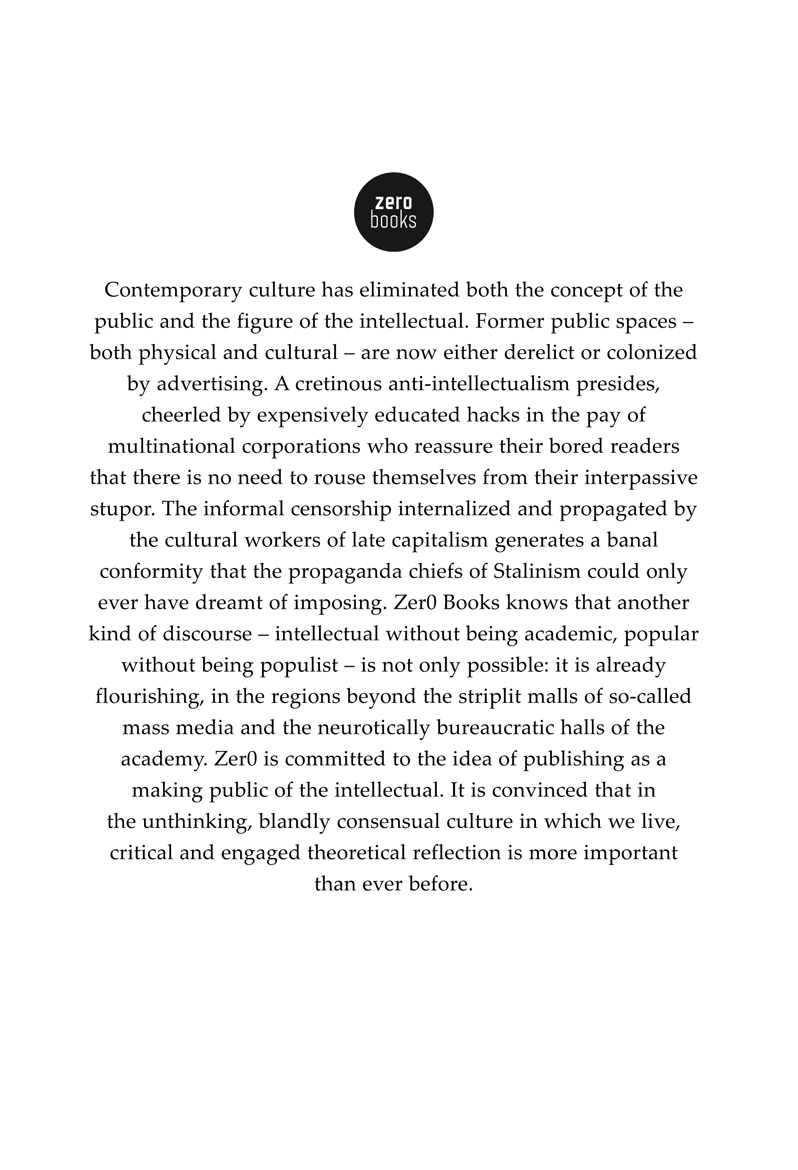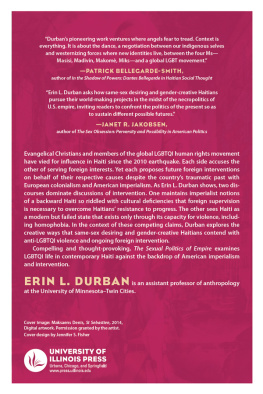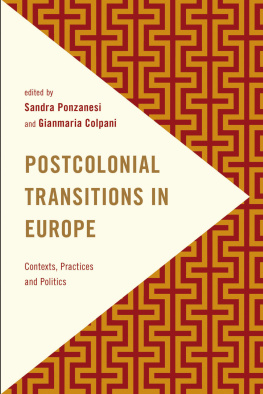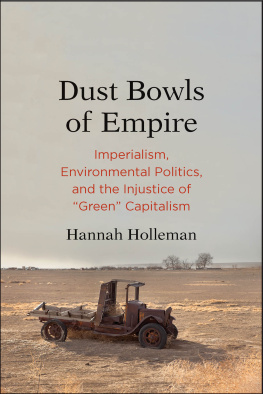Mayo - Politics of indignation: Imperialism, postcolonial disruptions and social change
Here you can read online Mayo - Politics of indignation: Imperialism, postcolonial disruptions and social change full text of the book (entire story) in english for free. Download pdf and epub, get meaning, cover and reviews about this ebook. City: Ropley, year: 2012, publisher: Brumby Sunstate, National Book Network, Orca Book Services, Stephan Phillips, Zero Books;John Hunt Publishing, genre: Politics. Description of the work, (preface) as well as reviews are available. Best literature library LitArk.com created for fans of good reading and offers a wide selection of genres:
Romance novel
Science fiction
Adventure
Detective
Science
History
Home and family
Prose
Art
Politics
Computer
Non-fiction
Religion
Business
Children
Humor
Choose a favorite category and find really read worthwhile books. Enjoy immersion in the world of imagination, feel the emotions of the characters or learn something new for yourself, make an fascinating discovery.

- Book:Politics of indignation: Imperialism, postcolonial disruptions and social change
- Author:
- Publisher:Brumby Sunstate, National Book Network, Orca Book Services, Stephan Phillips, Zero Books;John Hunt Publishing
- Genre:
- Year:2012
- City:Ropley
- Rating:3 / 5
- Favourites:Add to favourites
- Your mark:
- 60
- 1
- 2
- 3
- 4
- 5
Politics of indignation: Imperialism, postcolonial disruptions and social change: summary, description and annotation
We offer to read an annotation, description, summary or preface (depends on what the author of the book "Politics of indignation: Imperialism, postcolonial disruptions and social change" wrote himself). If you haven't found the necessary information about the book — write in the comments, we will try to find it.
Mayo: author's other books
Who wrote Politics of indignation: Imperialism, postcolonial disruptions and social change? Find out the surname, the name of the author of the book and a list of all author's works by series.
Politics of indignation: Imperialism, postcolonial disruptions and social change — read online for free the complete book (whole text) full work
Below is the text of the book, divided by pages. System saving the place of the last page read, allows you to conveniently read the book "Politics of indignation: Imperialism, postcolonial disruptions and social change" online for free, without having to search again every time where you left off. Put a bookmark, and you can go to the page where you finished reading at any time.
Font size:
Interval:
Bookmark:

POLITICS OF INDIGNATION
Peter Mayo shows us with his most challenging and original new book not only the central problem of a globalizing Mediterranean world (including the Arab world and its indignant youth), but he also provides us with most important insights about how to develop new concepts for the new learning situations. One common and most important element of Mayos publication is that he underscores the political basis of education. He shows that education is not a neutral enterprise (unlike the way neoliberal economy presents it) but is serving either to domesticate and strengthen the status quo of subaltern groups, or else liberate in the sense of contributing to the ushering in of a new world in which principles of social justice and ecological sustainability are held uppermost. Education is viewed in the broadest sense, the way Gramsci viewed it, seeing it as central and integral to the workings of hegemony itself. This includes a more holistic view of critical engagement in the public sphere, 50 years after the release of Habermas famous book on this issue.
Ursula Apitzsch , Professor of Political Science and Sociology, Goethe-University of Frankfurt/Main, whose many publications include, Self Employment Activities of Women and Minorities. Their Success or Failure in relation to Social Citizenship Policies (2008); Care and Migration (2010).
Peter Mayos fascinating book is as timely as it is important. It is incisive and trenchant in its critique of global capitalism, and presents cogent and informative analyses of liberal and neoliberal policies that buttress it. It is courageous and provocative as it develops alternative perspectives on central social and political questions facing the world such as race, migration, education and socio-economic inequality. It is well written and well argued, as well as engaging and engaged. It is a book that will appeal to both the specialist and the general reader.
Benedetto Fontana , Political Science, Baruch College, CUNY, New York City, author of Hegemony and Power: On the Relation Between Gramsci and Machiavelli (1993), and co-editor of Talking Democracy: Historical Perspectives on Rhetoric and Democracy (2004).
Education and healthcare are spheres in which the failures of capitalism and neoliberalism are unmistakable and mounting. Peter Mayos masterful book provides fabulous insight connecting Cuban successes in medicine and education, Nicaraguan literacy campaigns, the centrality of the crisis of higher education in Europe today and the recent uprisings in the Middle East. Working through particular cases of atrocity as well as success, Mayo gives an intimate sense of the obstacles and political possibilities facing us today. His broad conception of education and the continuing role of the state within global capitalism are essential. Emphasizing South-South cooperation and non-profit oriented exchange, Mayo provides hopeful alternatives to common North-South dynamics.
Peter Ives , Professor, Dept. of Politics, University of Winnipeg and author of Gramscis Politics of Language: Engaging the Bakhtin Circle and the Frankfurt School (2004) and Language and Hegemony in Gramsci (2004).
Politics of Indignation is a challenging, accessible and exciting book. Not only does it provide a critical analysis of the neoliberal onslaught on public education across a range a countries, it also offers new insights into the dynamics of control, while demonstrating how and where resistance has succeeded. It is a hopeful book; it encourages and inspires the reader to act to protect public interest values in education, not least because action is shown to be effective in different contexts and countries. I strongly recommend it to all of those who wish to comprehend and to resist the attacks on public education.
Kathleen Lynch , UCD Equality Studies Centre, School of Social Justice, University College Dublin, Ireland co-author of New Managerialism in Education (2012)
Politics of
Indignation
Imperialism, Postcolonial
Disruptions and Social Change
First published by Zero Books, 2012
Zero Books is an imprint of John Hunt Publishing Ltd., Laurel House, Station Approach,
Alresford, Hants, SO24 9JH, UK
www.johnhuntpublishing.com
www.zero-books.net
For distributor details and how to order please visit the Ordering section on our website.
Text copyright: Peter Mayo 2012
ISBN: 978 1 78099 536 6
All rights reserved. Except for brief quotations in critical articles or reviews, no part of this
book may be reproduced in any manner without prior written permission from the publishers.
The rights of Peter Mayo as author have been asserted in accordance with the Copyright, Designs
and Patents Act 1988.
A CIP catalogue record for this book is available from the British Library.
Design: Stuart Davies
Printed and bound by CPI Group (UK) Ltd, Croydon, CR0 4YY
We operate a distinctive and ethical publishing philosophy in all areas of our business, from our global network of authors to production and worldwide distribution.
We are living in hard though interesting times. They are hard times in the sense that ordinary people are being made to pay for the lavish greed of a few beneficiaries of the capitalist system, the 1 per cent, comprising CEOs and bankers, who have brought the world to almost inconceivable ruin, placing the burden of austerity squarely on the shoulders of the 99 per cent. They are also hard times because, in North Africa and the Middle East, legitimate human struggles for work, dignity and genuine democracy have been and are still being met with some of the most brutal repression. We witness the lengths that people are prepared to go to hang on to positions of autocratic power and privilege. These are hard times indeed, given that it is the prerogative of a small percentage of powerful people to determine who is allowed to thrive and whose life is dispensable; who is allowed to live and who is left to rot in abject conditions, as manifest in the wake of Hurricane Katrina or in situations when social expenditure, including expenditure on health, is cut as a result of austerity measures. These are hard, hard times as public spaces are constantly commodified and privatized; new commons are privately enclosed. Important aspects of social life such as health and education, as well as pensions, become a matter of individual instead of social responsibility. These are times when once greatly cherished public goods, such as education and health, become consumer products, none more so than higher education (HE) institutions where the quest for profits and lucrative international HE markets is given more importance than the quest for an education that contributes to the development of a democratic public sphere.
And yet we are also living in interesting times in which politics is rescued from the exclusive clutches of politicians and is constantly being played out in globalized public arenas such as the squares and streets of Athens, Madrid, Cairo, Tunis, New York and Damascus, as a clear groundswell of dissent, indignation and tenacity is manifest and beamed throughout all corners of the globe. This is the kind of stuff which makes one dream of another world that is possible, which lends credence to the cry reverberating through the various world and regional social forums. And yet the strong sense of hope fuelled by these events is necessarily tempered by caution and the fear of a false dawn as caretaker regimes, following the deposition of an autocratic leader, drag their feet in ushering in much augured reforms. The threat of another civil war looms large in countries such as Libya, and certain autocratic regimes, as that in Syria, prove more resilient than others, backed by emerging economic and political powerhouses. The groundswell in the West lays bare the states maximal, as opposed to the much declared minimal, presence as the repressive forces over which it holds a monopoly make their presence felt. Earlier this very same state put paid to the myth, exposed in Chapter 1 of this book, that its presence has been curtailed in neoliberal times. It intervened to bail out banks and provide rescue packages to help prop up a tottering economy. Meanwhile precarious living is the staple of everyday life for thousands of citizens, skilled or unskilled, formally well educated or otherwise, as much coveted well paid middle class, career jobs are at a premium globally.
Font size:
Interval:
Bookmark:
Similar books «Politics of indignation: Imperialism, postcolonial disruptions and social change»
Look at similar books to Politics of indignation: Imperialism, postcolonial disruptions and social change. We have selected literature similar in name and meaning in the hope of providing readers with more options to find new, interesting, not yet read works.
Discussion, reviews of the book Politics of indignation: Imperialism, postcolonial disruptions and social change and just readers' own opinions. Leave your comments, write what you think about the work, its meaning or the main characters. Specify what exactly you liked and what you didn't like, and why you think so.












